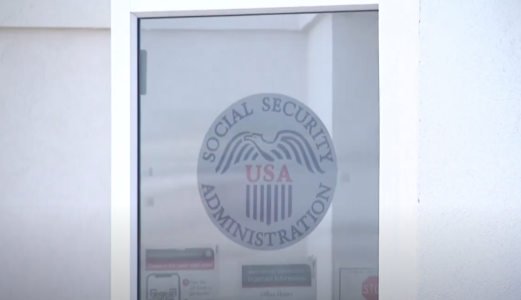Retirees on edge with “real and growing” anxiety about Social Security
- Replies 0
If you’ve been feeling a little uneasy about the future of Social Security, you’re not alone—and you’re certainly not imagining things.
Across the country, Americans are voicing record-high anxiety about whether Social Security will be there when they need it most.
Here at The GrayVine, we know how important this program is to our community, and we’re diving deep into what’s fueling these fears, what’s really at stake, and what you can do to protect your retirement security.
A Growing Storm of Worry
Let’s start with the numbers: A recent LendingTree DepositAccounts survey found that 59% of non-retired Americans are worried Social Security won’t be around when they retire.
That’s not just idle chatter at the coffee shop—this is a real, growing concern that’s cutting across age groups, but it’s especially pronounced among Generation X (those aged 45 to 60).
A whopping 70% of Gen Xers fear the Social Security coffers could run dry before they get their turn.
Why does this matter? Social Security isn’t just a government program—it’s the backbone of retirement for nearly 70 million Americans.

For many, those monthly checks are the difference between a comfortable retirement and a financial struggle.
So, when confidence in the system wobbles, it sends shockwaves through households, communities, and even the political landscape.
What’s Fueling the Anxiety?
Social Security’s financial future has long been a concern. According to the Social Security Board of Trustees’ 2024 report, the retirement trust fund is projected to run dry by 2033. After that point, the program could only cover 77% of scheduled benefits.
Proposals to raise the retirement age or reduce benefits are unpopular with voters. In fact, 68% of respondents say they would be less likely to support a lawmaker who backs cuts to Social Security.
Also read: Retirement concerns grow as ex-commissioner warns of Social Security collapse
Recent developments within the Social Security Administration (SSA) have intensified public concern.
A surge in early benefit claims—up 15% in March 2025—appears to reflect growing anxiety. At the same time, staffing cuts and office closures have strained services.
Much of this restructuring stems from a federal cost-cutting initiative led by Elon Musk’s Department of Government Efficiency (DOGE).
Since its launch, the agency has eliminated jobs, closed offices, and consolidated regional branches. While DOGE claims to have saved over $1 billion, these changes have been blamed for widespread delays and service disruptions.
Also read: What’s happening with Social Security? Many seniors aren’t feeling reassured
How Are Americans Responding?
A growing number of Americans are willing to pay more to preserve Social Security. Roughly 52% say they support tax increases to strengthen the system for future generations.
This sentiment mirrors a recent Gallup poll from April 2025, which found that 52% of U.S. adults expressed “a great deal” of concern about Social Security—up 9 percentage points from the previous year. It’s the steepest annual jump in 15 years.
Critics argue that the recent reforms have disproportionately harmed older Americans and those without reliable internet access, intensifying financial insecurity in retirement.
Matt Schulz, chief consumer finance analyst at LendingTree, noted: “Americans are losing faith in one of the cornerstones of retirement planning. That fear is real and growing, and it's leading to belt-tightening, anxiety, and even political consequences.”
What’s Being Proposed to Fix Social Security?
The future of additional SSA cuts is still unclear, and lawmakers remain divided over how to fix Social Security’s funding shortfall.
Senator Sheldon Whitehouse (D-RI) and Representative Brendan Boyle (D-PA) have reintroduced the Social Security and Medicare Fair Share Act. The bill would apply payroll taxes to earnings over $400,000—a figure well above the current tax cap of $168,600.
Source: WBSNS 10TV / Youtube.
What Can You Do?
While the fate of Social Security ultimately rests with Congress, there are steps you can take to protect your retirement:
1. Diversify Your Retirement Savings: Don’t rely solely on Social Security. If you’re still working, contribute to a 401(k), IRA, or other retirement accounts. Even small, regular contributions can add up over time.
2. Stay Informed: Keep up with news about Social Security and proposed changes. The more you know, the better you can plan.
3. Advocate for Your Interests: Contact your elected officials and let them know how important Social Security is to you. Your voice matters!
4. Plan for Multiple Scenarios: Work with a financial advisor to create a retirement plan that considers different possibilities—just in case benefits are reduced in the future.
Also read: President Trump revives something that involves millions—are you part of this comeback?

Are you worried about the future of Social Security? Have you changed your retirement plans because of these concerns? What steps are you taking to prepare? Share your thoughts, stories, and questions in the comments below!
Across the country, Americans are voicing record-high anxiety about whether Social Security will be there when they need it most.
Here at The GrayVine, we know how important this program is to our community, and we’re diving deep into what’s fueling these fears, what’s really at stake, and what you can do to protect your retirement security.
A Growing Storm of Worry
Let’s start with the numbers: A recent LendingTree DepositAccounts survey found that 59% of non-retired Americans are worried Social Security won’t be around when they retire.
That’s not just idle chatter at the coffee shop—this is a real, growing concern that’s cutting across age groups, but it’s especially pronounced among Generation X (those aged 45 to 60).
A whopping 70% of Gen Xers fear the Social Security coffers could run dry before they get their turn.
Why does this matter? Social Security isn’t just a government program—it’s the backbone of retirement for nearly 70 million Americans.

Concerns about the future of Social Security are growing sharply across the US, with 59 percent of non-retired Americans fearing the program won’t be available when they retire, especially among Generation X. Image source: WBNS 10TV / Youtube.
For many, those monthly checks are the difference between a comfortable retirement and a financial struggle.
So, when confidence in the system wobbles, it sends shockwaves through households, communities, and even the political landscape.
What’s Fueling the Anxiety?
Social Security’s financial future has long been a concern. According to the Social Security Board of Trustees’ 2024 report, the retirement trust fund is projected to run dry by 2033. After that point, the program could only cover 77% of scheduled benefits.
Proposals to raise the retirement age or reduce benefits are unpopular with voters. In fact, 68% of respondents say they would be less likely to support a lawmaker who backs cuts to Social Security.
Also read: Retirement concerns grow as ex-commissioner warns of Social Security collapse
Recent developments within the Social Security Administration (SSA) have intensified public concern.
A surge in early benefit claims—up 15% in March 2025—appears to reflect growing anxiety. At the same time, staffing cuts and office closures have strained services.
Much of this restructuring stems from a federal cost-cutting initiative led by Elon Musk’s Department of Government Efficiency (DOGE).
Since its launch, the agency has eliminated jobs, closed offices, and consolidated regional branches. While DOGE claims to have saved over $1 billion, these changes have been blamed for widespread delays and service disruptions.
Also read: What’s happening with Social Security? Many seniors aren’t feeling reassured
How Are Americans Responding?
A growing number of Americans are willing to pay more to preserve Social Security. Roughly 52% say they support tax increases to strengthen the system for future generations.
This sentiment mirrors a recent Gallup poll from April 2025, which found that 52% of U.S. adults expressed “a great deal” of concern about Social Security—up 9 percentage points from the previous year. It’s the steepest annual jump in 15 years.
Critics argue that the recent reforms have disproportionately harmed older Americans and those without reliable internet access, intensifying financial insecurity in retirement.
Matt Schulz, chief consumer finance analyst at LendingTree, noted: “Americans are losing faith in one of the cornerstones of retirement planning. That fear is real and growing, and it's leading to belt-tightening, anxiety, and even political consequences.”
What’s Being Proposed to Fix Social Security?
The future of additional SSA cuts is still unclear, and lawmakers remain divided over how to fix Social Security’s funding shortfall.
Senator Sheldon Whitehouse (D-RI) and Representative Brendan Boyle (D-PA) have reintroduced the Social Security and Medicare Fair Share Act. The bill would apply payroll taxes to earnings over $400,000—a figure well above the current tax cap of $168,600.
Source: WBSNS 10TV / Youtube.
What Can You Do?
While the fate of Social Security ultimately rests with Congress, there are steps you can take to protect your retirement:
1. Diversify Your Retirement Savings: Don’t rely solely on Social Security. If you’re still working, contribute to a 401(k), IRA, or other retirement accounts. Even small, regular contributions can add up over time.
2. Stay Informed: Keep up with news about Social Security and proposed changes. The more you know, the better you can plan.
3. Advocate for Your Interests: Contact your elected officials and let them know how important Social Security is to you. Your voice matters!
4. Plan for Multiple Scenarios: Work with a financial advisor to create a retirement plan that considers different possibilities—just in case benefits are reduced in the future.
Also read: President Trump revives something that involves millions—are you part of this comeback?
Key Takeaways
- Concerns about the future of Social Security are growing sharply across the US, with 59 percent of non-retired Americans fearing the program won’t be available when they retire, especially among Generation X.
- A recent survey found 62 per cent of non-retired Americans believe they’ll never be able to retire without Social Security, and 70 percent of Gen X worry benefits will run out before they retire.
- Major cuts, office closures, and staff reductions at the Social Security Administration have shaken public confidence, with many reporting delays and disruptions to services, particularly for older Australians and those without reliable internet.
- Most Americans oppose politicians who support cutting Social Security benefits, with 68 per cent saying it would impact their vote, and over half willing to pay higher taxes to keep the program funded for future generations.
Are you worried about the future of Social Security? Have you changed your retirement plans because of these concerns? What steps are you taking to prepare? Share your thoughts, stories, and questions in the comments below!






